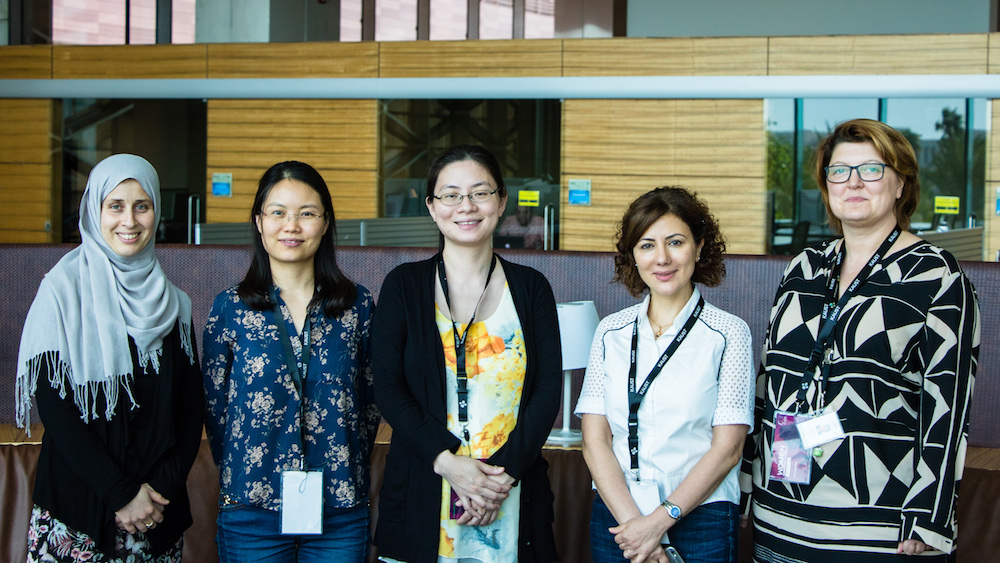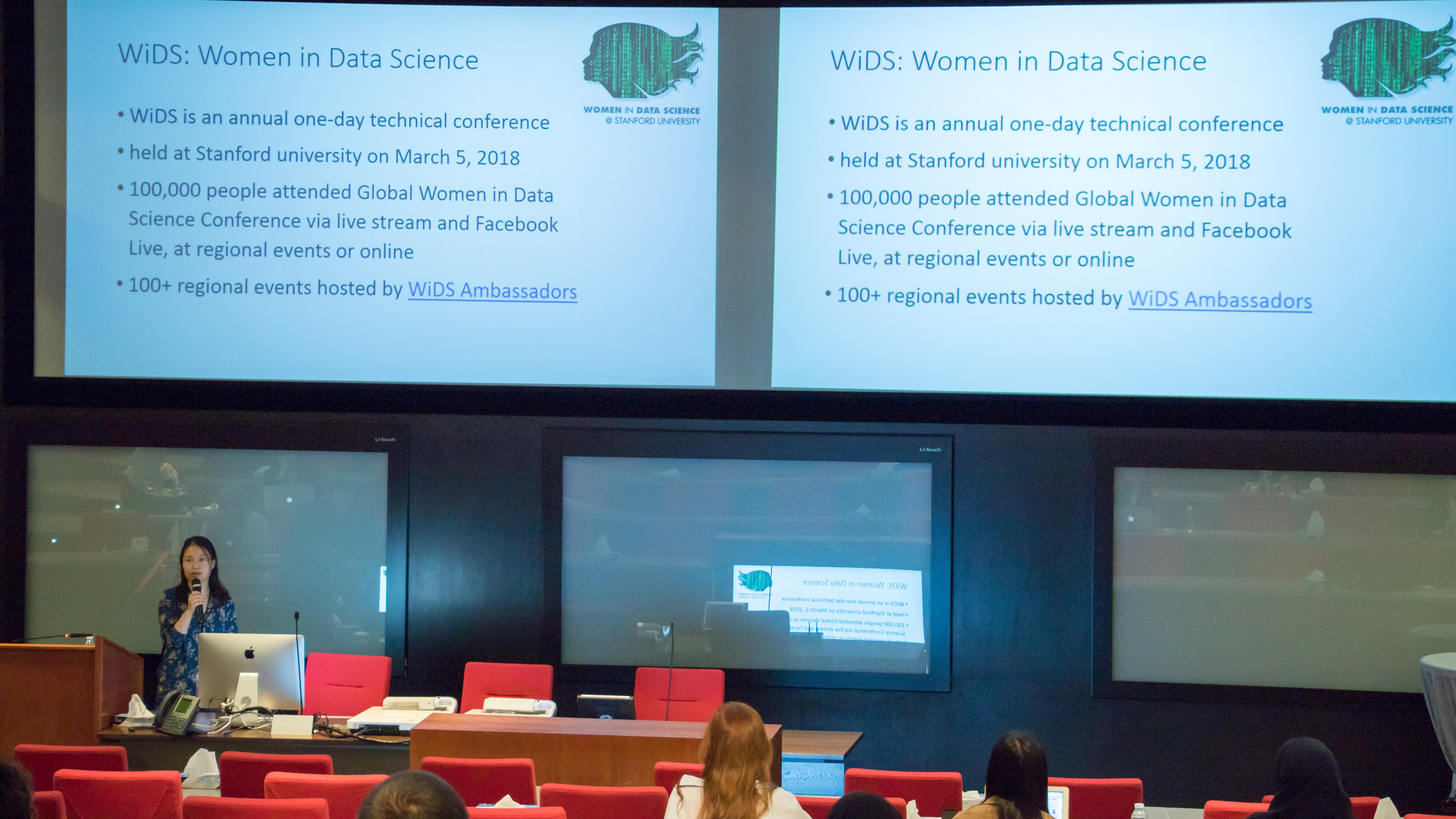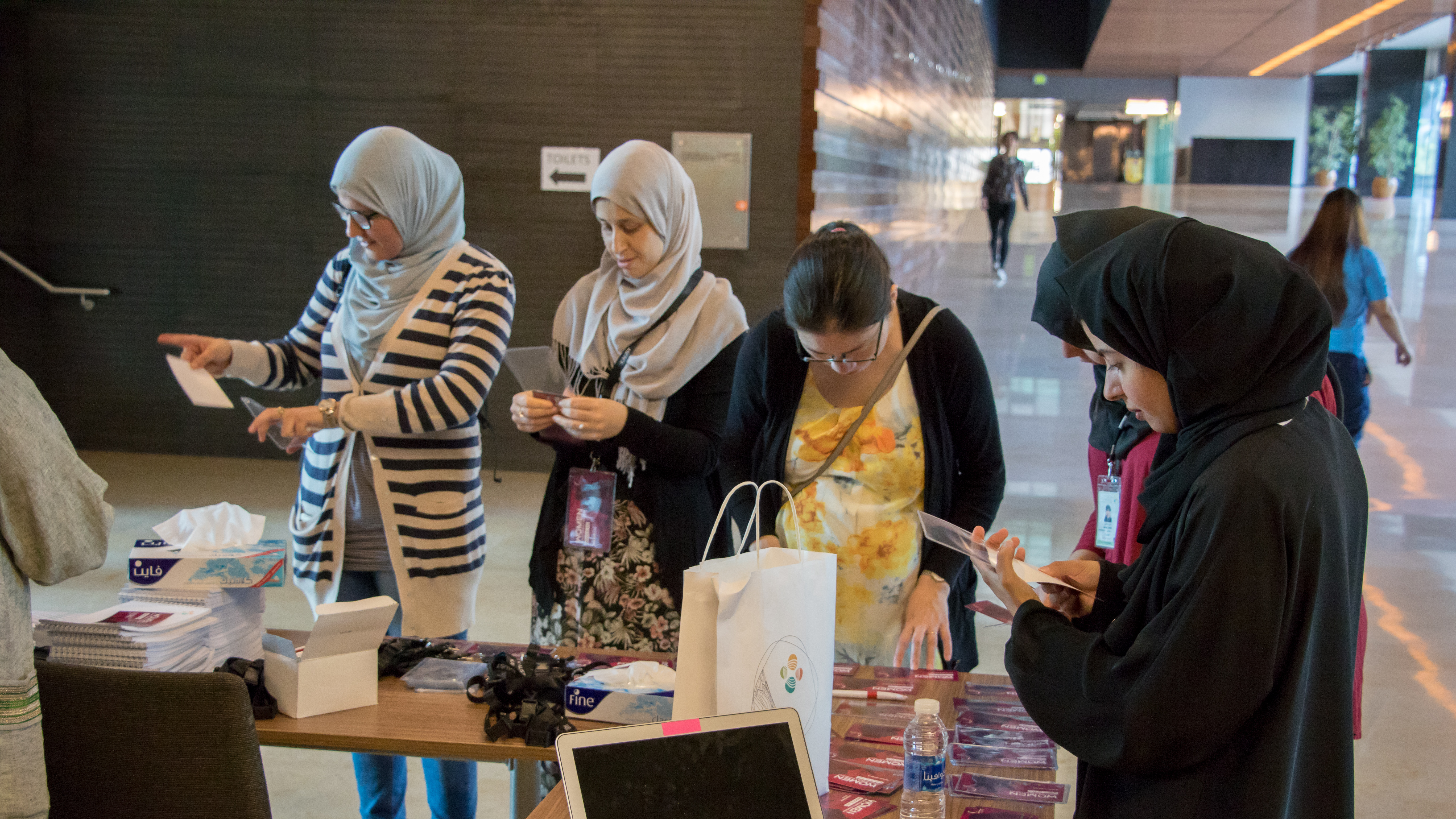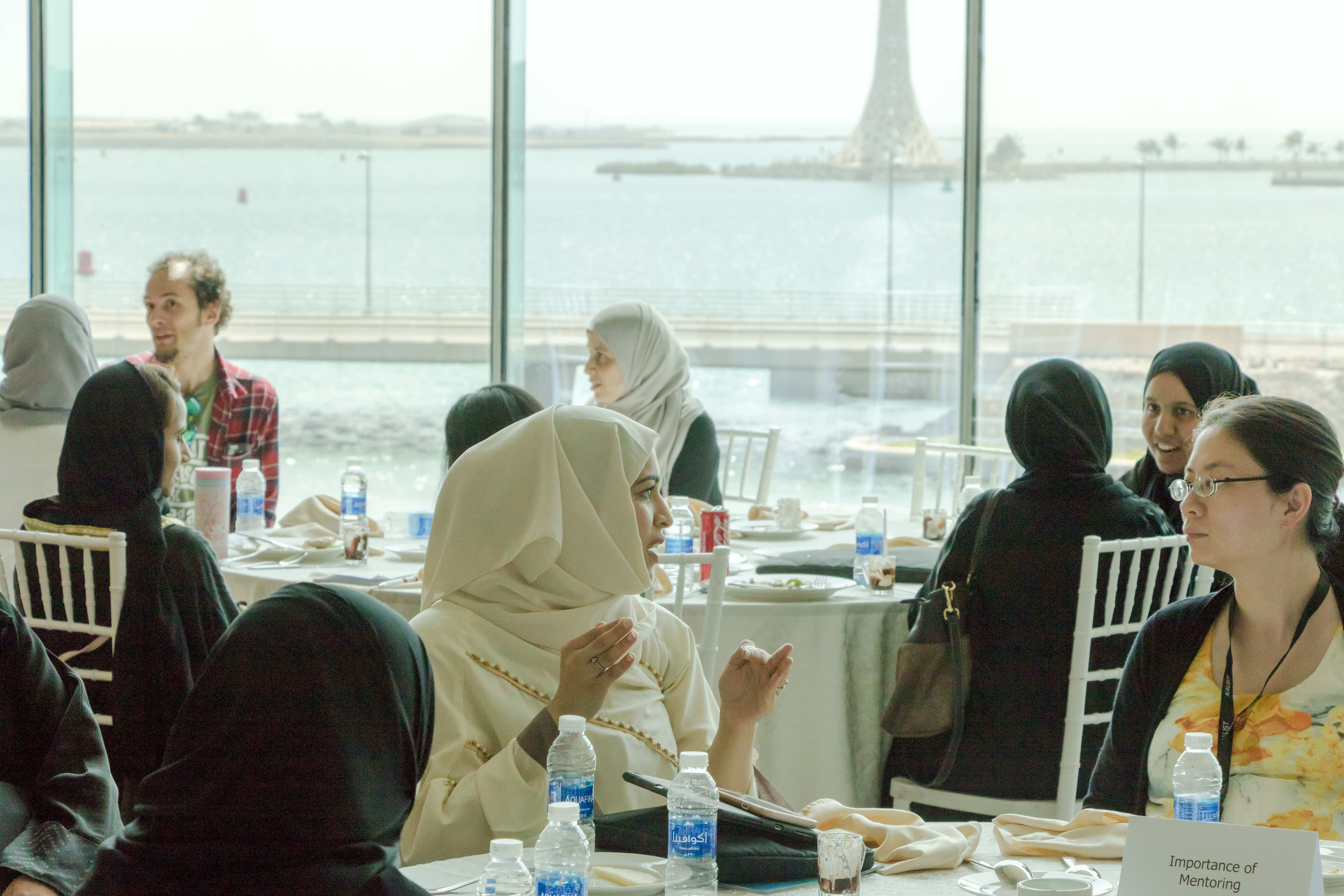Lifting up female scientists

The all-female WiDS-team that made this event possible at KAUST. From left to right: Meriem Laleg, Associate Professor in Electrical Engineering; Xiangliang Zhang, Associate Professor in Computer Science; Ying Wu, Associate Professor in Applied Mathematics and Computational Science; Inji Jaber Inji Jaber, WiDS organizer at KAUST; Francesca Serra, Communication Coordinator CEMSE.
- By Andrea Hulsbosch, KAUST News
Women in Data Science (WiDS) is like the Global Women's March for analytics; it's a phenomenon too big for just one city. WiDS is the largest data science conference on Earth—taking place in over 50 countries, it has attained more than 100,000 attendees and is tagged as a global movement.
The annual conference aims to inspire and educate data scientists worldwide—regardless of gender—and support women in the field. This year's WiDS conference was held at Stanford University with more than 100 regional institutions all over the world participating, including KAUST.
The latest in data science
The University celebrated women's achievements with the one-day technical conference providing an opportunity to hear about the latest data science related research and applications in a broad set of domains. Both men and women were encouraged to participate in the conference, which featured exclusively female speakers.

The University celebrates achievements in data science with Women in Data Science (WiDS), a one-day technical conference featuring exclusively female speakers. File photo.
KAUST has been dedicated to finding solutions for society's biggest challenges and preparing students for leadership in a complex world where women deserve their place.
"We're excited to bring WiDS to KAUST this year, creating awareness about the vast opportunities in the field, empowering women in the Arab world and exposing young students to exciting research and applications", said Xiangliang Zhang, associate professor of computer science at KAUST and WiDS ambassador.
"WiDS is the first event of the University's new initiative 'Women in Data Sciences and Technology' that aims to offer women in the field a supportive framework to help them pursue education, advance their careers and enter the high-tech industry," explained Inji Jaber, WiDS organizer at KAUST.
Gender diversity in data science
"With this global conference, we aim to inspire more women to enter this important and growing field that is having a major impact on every sector of our society," said Margot Gerritsen, director of the Institute for Computational & Mathematical Engineering (ICME) at Stanford University. "By showcasing the amazing work that these incredible women are doing, we also hope to reinvigorate women currently in fields related to data science."

The University celebrates achievements in data science with Women in Data Science (WiDS), a one-day technical conference featuring exclusively female speakers. File photo.
Data science today has a female representation of 26 percent. The growing need and importance of data science in the upcoming era presents a unique opportunity for both men and women. Including women— particularly in data science—is not only the right thing to do, but is backed up by research that shows that data science companies with higher gender diversity are proven to have a higher profitability and increased growth in their market size and new market penetration.
The conference started off with opening remarks by James Calvin, KAUST vice president for Academic Affairs. He acknowledged the remarkable contributions women have made in numerous disciplines that weren't recognized at the time.
"Almost 40 percent of our KAUST students are women. This means that we are helping to ensure that women are effective participants in science, technology, engineering and mathematics," explained Calvin.
Training a deep network
A number of local and international data scientists took part in the event. The main guest, Dr. Michele Sebag from The National Center for Scientific Research (CNRS) in Paris, discussed the stochastic gradient descent.
Sebag uses algorithms and hyper-parameters and emphasized the importance of training a deep network to find good results within the foreseeable future. Her talk entitled "Going As Fast As Possible But Not Faster" explained that if you go too fast with this method, you'll meet catastrophic events like sudden explosions.
"One cannot predict these sudden explosions, but one can observe them and cure them in order to go faster," Sebag said.
She presented a safe agnostic learning rate adaptation. When something wrong happens in a deep network, her idea is to backtrack to the previous state and halve the learning rates. This enables a more aggressive learning rate adaptation scheme and hence better results.
"It is a good time for half of mankind to take her place in data science and technology," she said.

The University celebrates achievements in data science with Women in Data Science (WiDS), a one-day technical conference featuring exclusively female speakers. File photo.
IoT, genomes and obesity
Dr. Kholoud Khateeb from Effat University gave a presentation on personalized health and wellness. Khateeb's goal is to bring healthcare outside the hospital and into the daily lives of people. To achieve the Kingdom's Vision 2030 goals of physical, mental and social wellbeing, she wants the available tools, techniques and data to contribute on a local as well as a global level.
For example, obesity currently threatens a third of the Saudi population. The situation has taken on epidemic proportions, with 70 to 75 percent of Saudis being overweight or obese. The Saudi Human Genome Program identified common genes in the Saudi population and how these affect diseases.
Science can now explain why people who eat the same portion of food don't extract the same levels of energy from it due to their different metabolisms. Using the data and looking into these differences, Khateeb wants to develop gene-based strategies to prevent health issues before they can occur.
"The Internet of Things [IoT] will reshape the future of Saudi Arabia. With a complete health record and the help of algorithms, you can get personalized advice to your specific need instead of general advice," she said.
She wants to make a personalized knowledge map for every individual by using data driven technologies so that individuals can be empowered to live a healthier lifestyle.
"A lot of generated data can be translated into knowledge and contribute to a better life for mankind," Khateeb said.
The future of data science
Other speakers, including Dina Garatly (visualization scientist, KAUST Visualization Core Lab) and Somayah Albaradei (Ph.D. student, KAUST), showed the broad applicability of data science approaches to many fields in addition to healthcare. The conversation also hit upon the unique challenges women face when working in science.
"Finding the balance between family life and a research career is very challenging, but having a great female mentor and role model is what got me through," acknowledged Dr. Basma Alharbi (KAUST Ph.D. alumna, '17).
Data scientists can apply their skills in almost limitless ways by collaborating with researchers wherever data sets can be made available. With an expected reduction of 50 percent of current jobs globally and a 30 percent unemployment rate, data science—expected to rise in demand by 28 percent in the coming two years—presents key opportunities for the Kingdom's Vision 2030.
Related stories:

